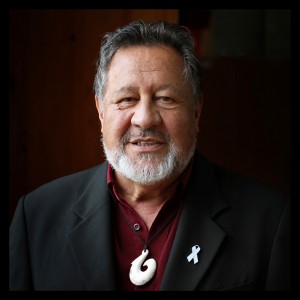The Māori Party is shocked and disappointed that the only Māori Centre of Research Excellence, Ngā Pae o te Māramatanga has had its bid for continued funding post 2015 turned down, and say it is a significant loss to the Māori research sector.
“The decision not to renew funding to Ngā Pae o te Māramatanga is a slap in the face to Māori research and researchers and is a clear sign that Government agencies are marginalising Māori development and communities,” says Dr Pita Sharples, MP for Tāmaki Makaurau.
“Knowledge is power and research is a key component of ensuring that people are armed with the right knowledge, information and analysis to grow, develop and also challenge the world around us. It is a vital part of growing the capability of people and economy, but more than that it is critical to the development of Māori communities as indigenous peoples of Aotearoa.”
“Research was used as a tool to colonise our people, and the Māori research agenda is all about reclaiming our lost knowledge, our hidden potential, and making research relevant to the development of our communities. In addition we have world class experts in a range of fields who are Māori, and of the 500 plus Māori PhD graduates we have, all if not most of them have been supported in some way or involved with Ngā Pae o te Māramatanga and its Māori PhD support programmes, scholarships and internships,” says Dr. Sharples.
“It has taken generations to reclaim much of the mātauranga that was lost to us and to develop research methodologies that are respectful of tangata whenua while feeding in to our collective research needs. It has also taken a lot of hard work to build capacity in the Māori research sector through developing tools, people, and space for Māori research and knowledge to flourish.”
“The news about Ngā Pae o te Māramatanga is the latest in what seems to be a widespread and systemic undermining of the Māori research sector. It seems to be at odds with Kā Hikitia the Māori Education Strategy; He Kai Kei Aku Ringa which talks about building relationships between iwi and tertiary providers; and the Tertiary Education Strategy, launched today, which has a focus on Māori achievement. Growing Māori research, researchers and academics are a part of all of these strategies, and this is what Ngā Pae o te Māramatanga has been doing.”
“A briefing paper we received last year which was endorsed by a number of Māori academics outlined concerns about the National Science Challenges, which sits in the Science and Innovation portfolio. The concern around the lack of visibility of Māori research priorities, and Māori researchers in the Challenges highlighted a need for an inclusive Treaty based approach to developing the Challenges. These same issues apply to this situation, and indicates a systematic undermining of Māori research.”
“The Māori Party will raise this issue with Minister Joyce and ask him to explain how he intends to support Māori research development now and into the future. Ultimately, the government needs to recognise that Māori research is a necessity to the development of our whanau, hapu, iwi and our nation,” says Dr. Sharples.
-from Scoop Media

